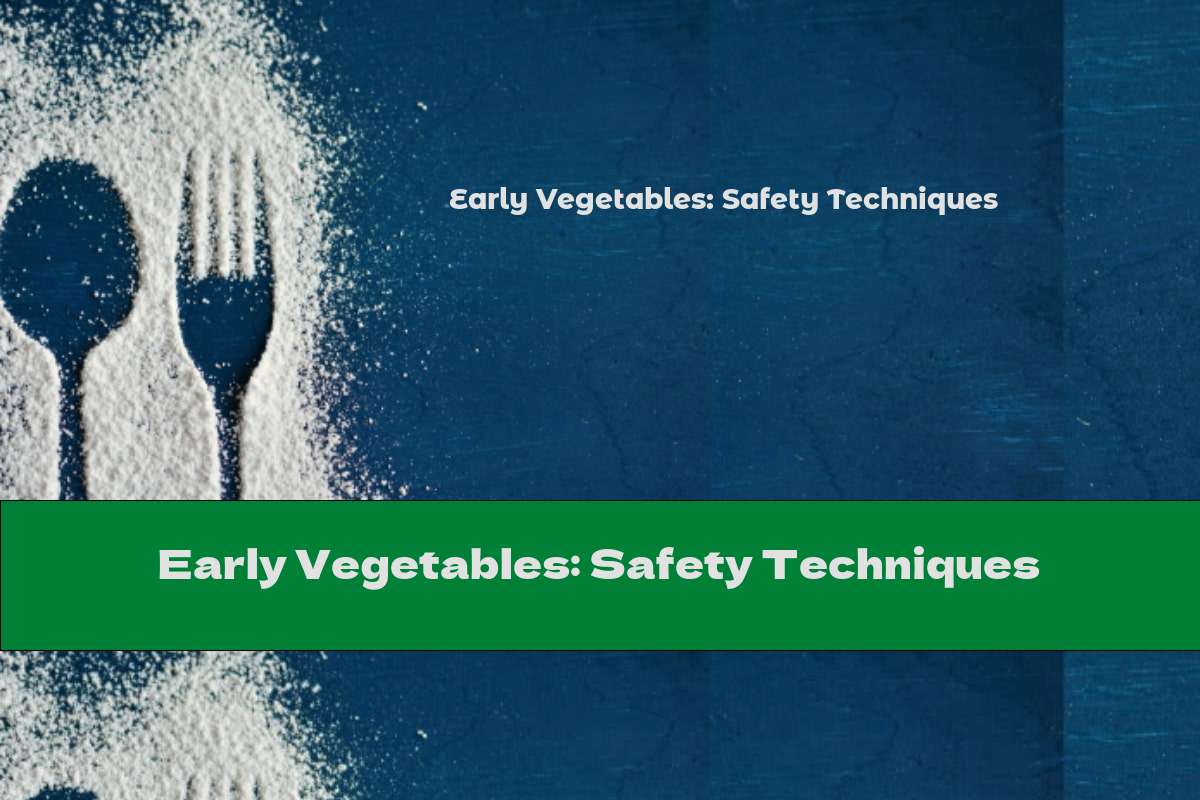Early Vegetables: Safety Techniques
 Author: Joe Fowler
Time for reading: ~4
minutes
Last Updated:
February 21, 2026
Author: Joe Fowler
Time for reading: ~4
minutes
Last Updated:
February 21, 2026

In March, the first early vegetables begin to appear on store shelves. And it is so hard to resist the temptation to buy them!
In March, the first early vegetables begin to appear on store shelves. And it is so hard to resist the temptation to buy them!
And many of us buy early "vitamins", despite the high price and the understanding that these beautiful greenhouse tomatoes, cucumbers, cabbage and other greens can be harmful and even dangerous to health.
"Vitamins" from the greenhouse
Greenhouse and soil vegetables differ not only in their taste, but also in their chemical composition. In the battle for the greenhouse harvest, many farms use fertilizers and stimulants to ripen vegetables as quickly as possible. The higher the concentration of these substances, the more dangerous a vegetable stuffed with them becomes.
An excess of nitrates (nitrogenous compounds that promote plant growth) with a lack of antioxidant vitamins turns into nitrites - dangerous carcinogens that can not only cause poisoning, but even lead to oxygen starvation of cells and tissues, and with systematic use, cause the formation of malignant tumors.
Moreover, an excess of nitrates is not always a dishonest attitude of agronomists towards their future harvest, excessive accumulation of nitrates can also occur due to incorrect temperature conditions, insufficient lighting, violations of the humidity regime or in the case when the crops are very dense.
Nitrates in descending order
Not all vegetables accumulate nitrates in the same way, some have more of them, while others are less dangerous. Kale, lettuce, radish, green onion, dill, spinach are most prone to the accumulation of nitrogenous compounds. In second place are cauliflower, cucumbers, broccoli, cauliflower, zucchini, celery, carrots, white cabbage, radish. The least safe are legumes (peas, beans), potatoes, sweet peppers, Brussels sprouts, tomatoes.
Choose correctly!
Still, it's hard to resist early vegetables, so remember a few rules when going after them:
- It is safer to buy early vegetables in stores. There, products are accepted from producers who have the necessary quality certificates, which state that the product is safe and that the nitrate levels in vegetables do not exceed the permissible limits. Markets cannot always provide such strict quality control.
- The bigger the fruit, the more chemicals it contains - avoid it.
- All greens (dill, spinach, parsley) and cucumbers should be dark green. The cuttings of the green roots should be fresh, and the cucumbers should be firm and have a thin skin.
- Choose light and not too firm young cabbage with bright green shiny leaves and moist, fresh edges.
- Radish fruits should not be very large, firm and evenly colored without dark and yellow spots.
- when choosing a bell pepper, it is recommended to pay attention to the cup (it should be green) and the freshness of the cut.
How to neutralize nitrates
It is impossible to completely clean early vegetables from them, but it is quite possible to reduce their number. For this you need:
- Before eating and cooking, wash vegetables thoroughly, remove green parts (potatoes, carrots).
- Then soak the vegetables for 15-20 minutes in cold water, drain the water. Soak again.
- It is advisable to peel vegetables such as cucumbers and radishes, as well as cut off the stalks and tails.
- Stems of greens (parsley, dill, etc.) accumulate more nitrates than twigs, so it is not recommended to eat them.
- Vegetables that will not be subjected to heat treatment (cucumbers, tomatoes, cabbage, greens) must be sprinkled with lemon or pomegranate juice before use - the acid contained in them has the ability to neutralize nitrates.
- During heat treatment, the nitrate level decreases by 60-80%. But it is recommended to drain the broth immediately after cooking, and then salt the vegetables.
- Do not store vegetables for a long time, even in the refrigerator - with temperature changes and long storage, nitrates quickly turn into nitrites.
- Cook once and in no case store cut vegetables and salads in the refrigerator.
A categorical NO!
Early vegetables are strictly contraindicated for babies under one year, preschool and elementary school age children, as their digestive system has not yet learned to deal with harmful substances and the product to which an adult body will not react can cause poisoning in a child.
Also, do not rush to introduce early vegetables to the diet of the elderly, especially if the person has diseases of the cardiovascular system, diseases of the respiratory tract or anemia. Early vegetables are categorically contraindicated for pregnant and lactating women, harmful carcinogens can not only cause allergies in the child, but even cause serious diseases of the central nervous system in the fetus and cause intrauterine abnormalities in its development.
At the first signs of poisoning
If, despite all precautions, you are still poisoned by early vegetables and the following symptoms are observed: diarrhea, vomiting, colic-like abdominal pain, the following measures should be taken:
- clean the stomach by inducing vomiting;
- take activated carbon (at the rate of 1 tablet per 10 kg of human weight) or Allochol.
Improvement should occur within a few hours, otherwise call your doctor.
Related Articles
- The Role of E339ii in Nutrition: Benefits, Sources, and Safety
- The Role of Sodium Methylparaben in Nutrition: Uses, Controversy, and Safety
- The Role of E321 in Nutrition: Benefits, Controversies, and Safety
- The Power of Allium Vegetables: Health Benefits and Recipes
- Understanding E450 i: Safety, Common Foods, Health Effects, and Alternatives